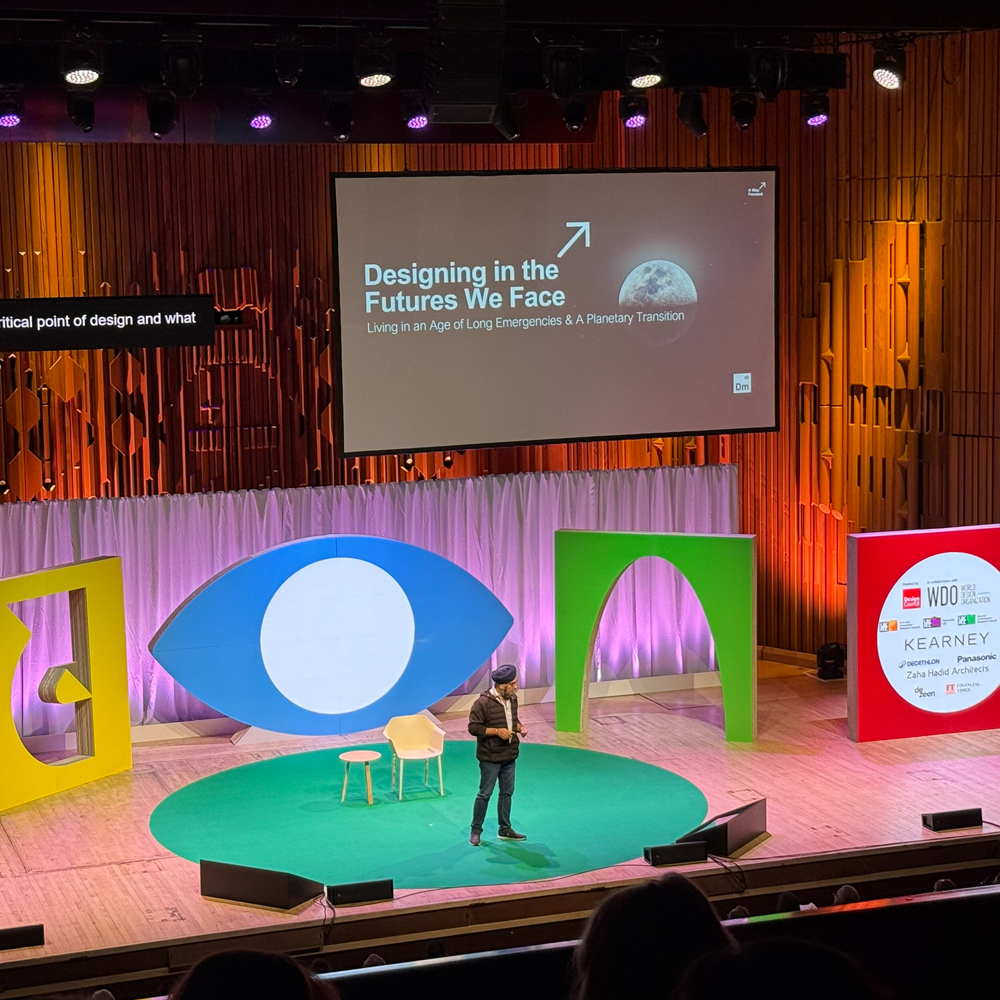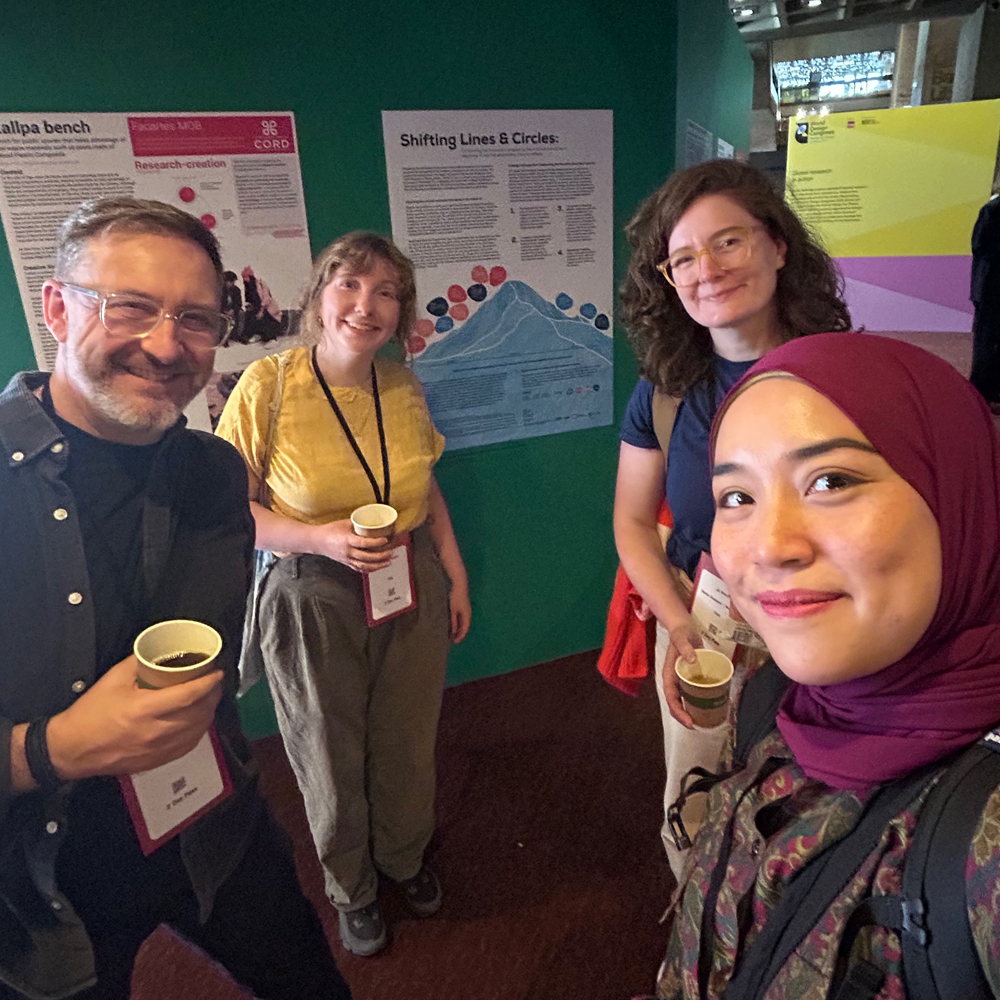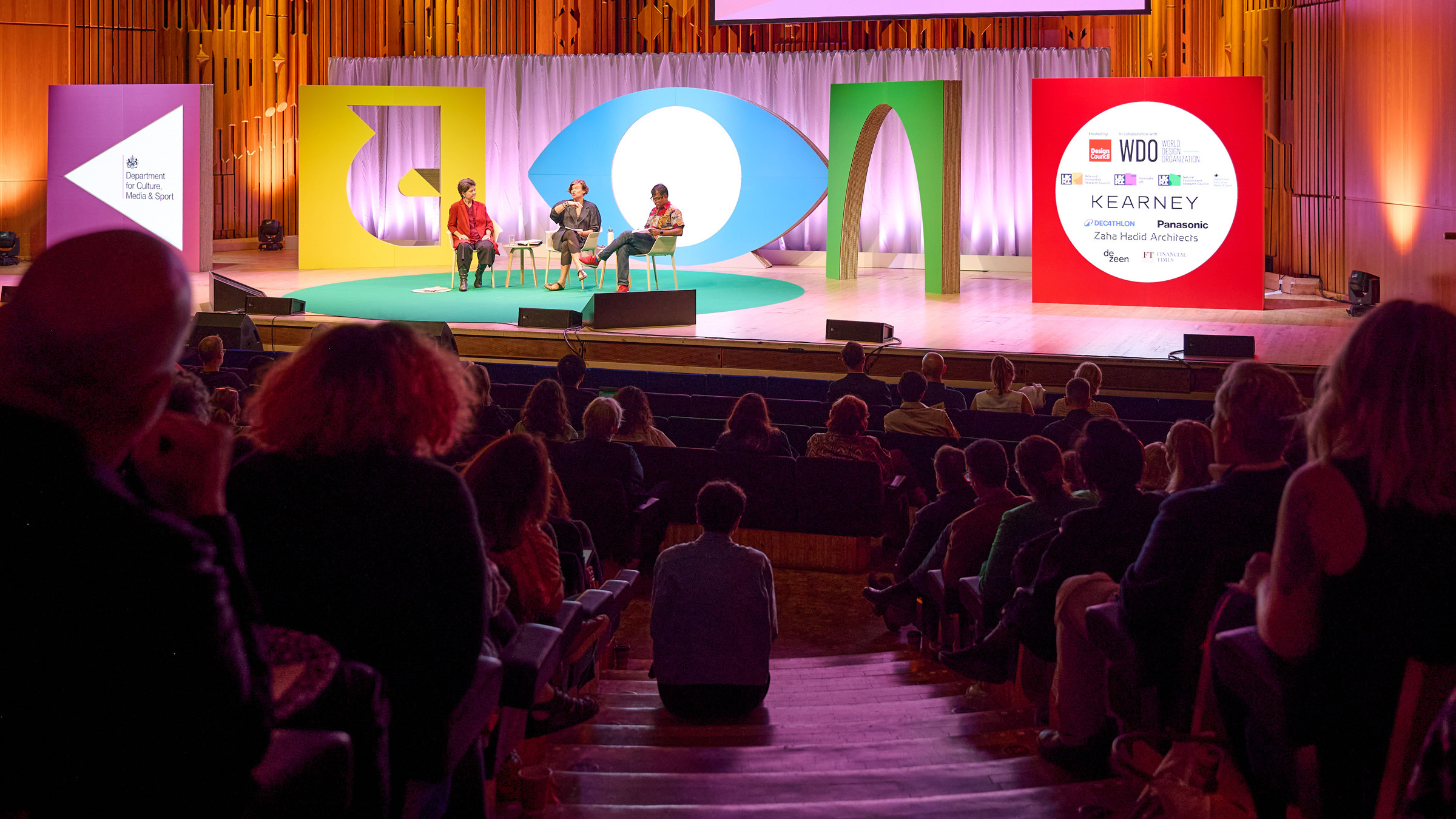Shifting Lines & Circles: Contouring Innovation in the Creative Industries
Last month, our Media Cymru team joined global design leaders at the World Design Congress 2025: Design for Planet, held at London’s Barbican Centre. The two-day event brought together critical dialogues and thought-provoking debates on what it truly means to design for the planet, for people, and for the futures we imagine. As part of the event’s showcase, the team shared how our work with Media Cymru is supporting Welsh creative businesses to embed circularity into their practices through design-led interventions.
Under the theme Economy and Design — Innovating for Circular Economies, we presented a research poster that introduced how we use a design-led approach to support Welsh creative freelancers, sole traders, and SMEs in the creative industries to embed circularity into their work. The poster highlighted the critical role of design facilitators — not only in helping creative businesses navigate the complexities of circular economy principles, but also in challenging common misconceptions around what circularity means in practice. It also showed how design can help creatives rethink the systems, processes, and cultures they work within to build a more sustainable future.

As with all our projects, we take time to understand who is involved — from the people using the solutions to those delivering them. We also encourage projects to explore both the benefits and potential unintended consequences of their ideas, known as rebound effects. For the purposes of our poster Shifting Lines & Circles: Contouring the innovation shaped by creative industries in response to the transformation plan for Wales, we mapped selected projects against the Value Hill framework to illustrate how their thinking around value creation — both economic and environmental — has evolved over time.

“It was brilliant seeing our research poster contribution on how we support our Media Cymru projects to incorporate circular economies into their ways of working, platformed on a global stage.”
—Siena DeBartolo, Designer - User Researcher, PDR
Looking ahead, we remain committed to learning, unlearning, and sharing how design can help people respond to economic shifts and systemic transformations — ensuring that innovation in the creative industries continues to be both sustainable and impactful

